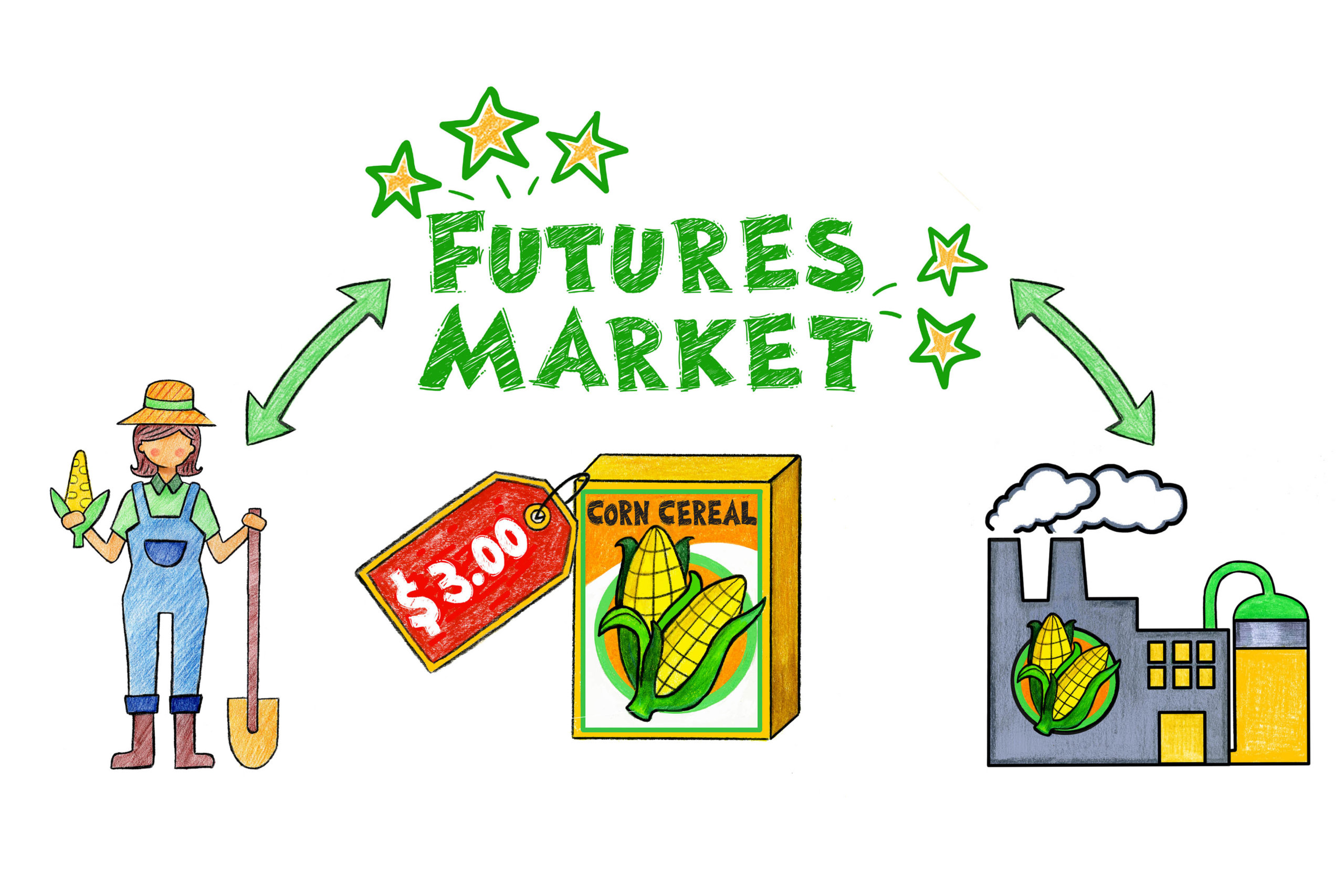Futures market
Futures market
To understand fully what a futures market is, it’s important to understand the basics of futures contracts, the assets traded in these markets.
Futures contracts are made in an attempt by producers and suppliers of commodities to avoid market volatility. These producers and suppliers negotiate contracts with an investor who agrees to take on both the risk and reward of a volatile market.
The Basics
Futures markets or futures exchanges are where these financial products are bought and sold for delivery at some agreed-upon date in the future with a price fixed at the time of the deal. The markets are for more than simply agricultural contracts, and now involve the buying, selling and hedging of financial products and future values of interest rates.
Futures contracts can be made or “created” as long as open interest increases, unlike other securities that get an issue. The size of futures markets (which usually increase when the stock market outlook is uncertain) is larger than that of commodity markets, and are a key part of the financial system.
Typical Users of the Futures Markets
- Most participants in the futures markets are commercial or institutional commodities producers or consumers
- Most participants are “hedgers” who trade futures to maximize the value of their assets. Also, to reduce the risk of financial losses from price changes
- Other participants are “speculators” who attempt to profit from price changes in futures contracts
Major Futures Markets
Large futures markets run their clearinghouses, where they can both make revenue from the trading itself and the processing of trades. Some of the biggest futures markets operate their clearinghouses. It includes the Chicago Mercantile Exchange, the ICE, and Eurex. Other markets like CBOE and LIFFE have outside clearinghouses (Options Clearing Corporation and LCH.Clearnet, respectively) settle trades.
Furthermore, most futures markets register with the Commodity Futures Trading Commission (CFTC), the main U.S. body in charge of regulation. The national regulatory body in the country in the base regulates usually the exchanges.
Approach the Futures Markets with Caution
- Speculating in commodity futures and options is a volatile, complex and risky venture. This is rarely suitable for individual investors or “retail customers”
- Many individuals lose all of their money and can require to pay more than they invested initially
- Learn about fraudulent activities in the futures markets
